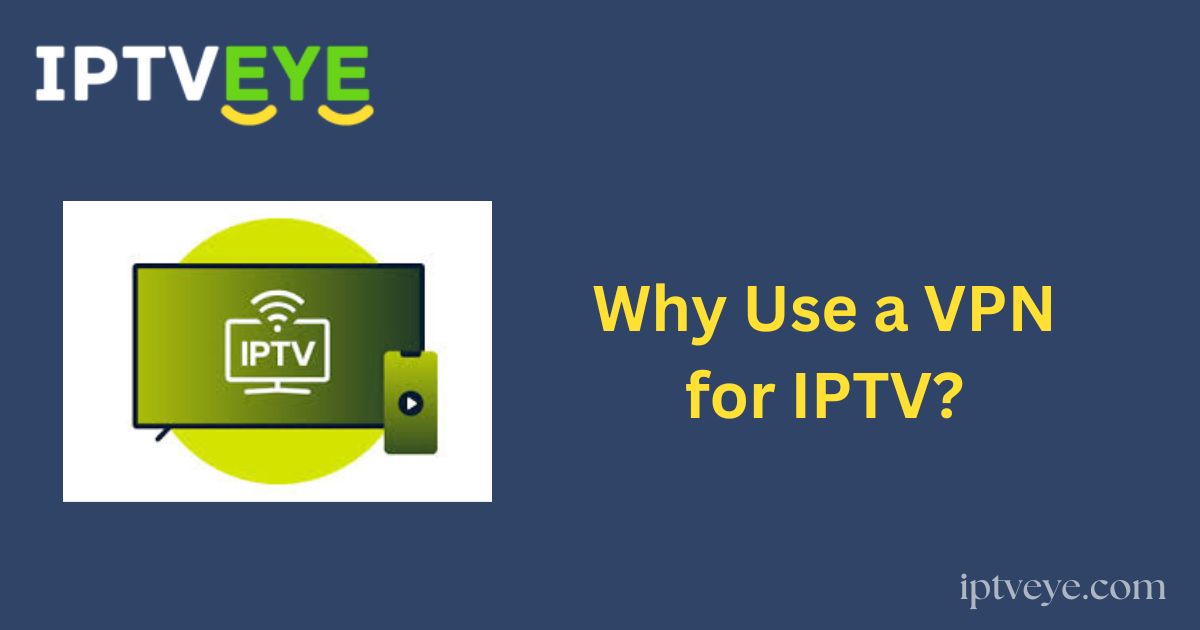Using a Virtual Private Network (VPN) alongside IPTV services enhances privacy, circumvents geographical restrictions, and safeguards streaming activity from throttling or surveillance.
However, while a VPN offers numerous benefits, users must choose reputable providers and remain compliant with the terms of service of both the VPN and IPTV platforms.
Why Use a VPN for IPTV?
A Virtual Private Network (VPN) can significantly improve the IPTV viewing experience by offering greater privacy, unrestricted access to content, and enhanced data protection.
Although a VPN does not guarantee complete anonymity, it adds a critical layer of security and flexibility for IPTV users. Below are the key reasons why many users choose to integrate a VPN with their IPTV setup:
1. Bypassing Geographical Restrictions
Many IPTV services enforce content restrictions based on regional licensing agreements. A VPN allows users to bypass these geo-blocks by masking their IP address and making it appear as though they are accessing the service from another country.
This enables access to a broader range of content, including international channels and region-specific broadcasts that would otherwise be unavailable.
2. Enhancing Privacy and Anonymity
A VPN encrypts your internet connection, making it difficult for third parties—such as ISPs, government agencies, or cyber attackers—to monitor your online activity.
This is particularly valuable for IPTV users who prefer to keep their streaming habits private. Although VPNs don’t make users completely anonymous, they significantly reduce tracking risks by masking IP addresses and obfuscating browsing patterns.
3. Avoiding ISP Throttling
Internet Service Providers (ISPs) often throttle bandwidth during high-traffic periods or when they detect specific activities like video streaming. IPTV traffic can be particularly affected by such throttling.
A VPN helps conceal the nature of your internet usage, making it harder for ISPs to identify and slow down IPTV streams—thereby ensuring smoother and more consistent viewing.
4. Improved Security and Data Protection
When signing up for IPTV services, users often need to provide personal and payment information.
VPNs establish a secure, encrypted connection between your device and the IPTV server, protecting sensitive data from being intercepted by hackers or malicious actors, especially when using unsecured networks.
5. Protection on Public Wi-Fi Networks
Public Wi-Fi is notoriously vulnerable to cyber threats, such as Man-in-the-Middle attacks. Streaming IPTV over such networks without protection can expose you to significant risks.
A VPN encrypts your data even on public connections, safeguarding against unauthorized access or data breaches.
6. Avoiding Content Blackouts and Censorship
In some regions, IPTV content may be restricted or censored due to local laws or broadcast agreements.
A VPN allows users to circumvent such limitations by connecting through a server in a location where the content is accessible, ensuring uninterrupted access to desired channels and programs.
7. Improving Streaming Quality
In certain cases, VPNs can enhance streaming performance by selecting more efficient network routes to the IPTV server.
This can reduce latency and buffering issues, especially for users facing inconsistent or congested ISP routing paths. The result is a smoother and higher-quality streaming experience.
8. Secure Remote Access While Traveling
For users traveling or living abroad, accessing IPTV content from their home country can be challenging due to regional restrictions.
A VPN enables secure, remote access to home-based IPTV services, making it an essential tool for expatriates, digital nomads, and frequent travelers.
9. Compliance and Considerations
While VPNs provide valuable benefits, it’s important to remember that not all VPNs offer the same level of privacy or performance.
Users should select a trusted and reputable VPN provider with clear policies on data logging, speed, and customer support.
Additionally, using a VPN does not exempt users from the terms of service of their IPTV provider or the applicable laws in their jurisdiction.
Conclusion
A VPN is a powerful tool for enhancing the IPTV experience, offering privacy, security, and unrestricted content access.
Whether you’re avoiding ISP throttling, protecting your data, or streaming content while abroad, a VPN provides critical advantages. However, responsible use and compliance with service terms remain essential.
FAQs
Is using a VPN for IPTV legal?
Yes, using a VPN is legal in most countries. However, the legality of accessing certain IPTV content may vary by region. Always ensure compliance with local laws and IPTV provider terms.
Will a VPN slow down my streaming speed?
Some VPNs may introduce minor latency due to encryption and rerouting. High-quality VPN providers, however, often offer optimized servers to maintain or even improve streaming performance.
Can I use a free VPN for IPTV?
Free VPNs often come with limitations such as slower speeds, data caps, and potential privacy risks. For IPTV, a premium VPN with strong encryption and no-logs policy is recommended.
Do I need to configure the VPN on my streaming device?
Yes, most VPNs offer apps for common streaming devices such as FireStick, Android TV, and routers. Device-specific setup guides are usually provided by the VPN provider.
